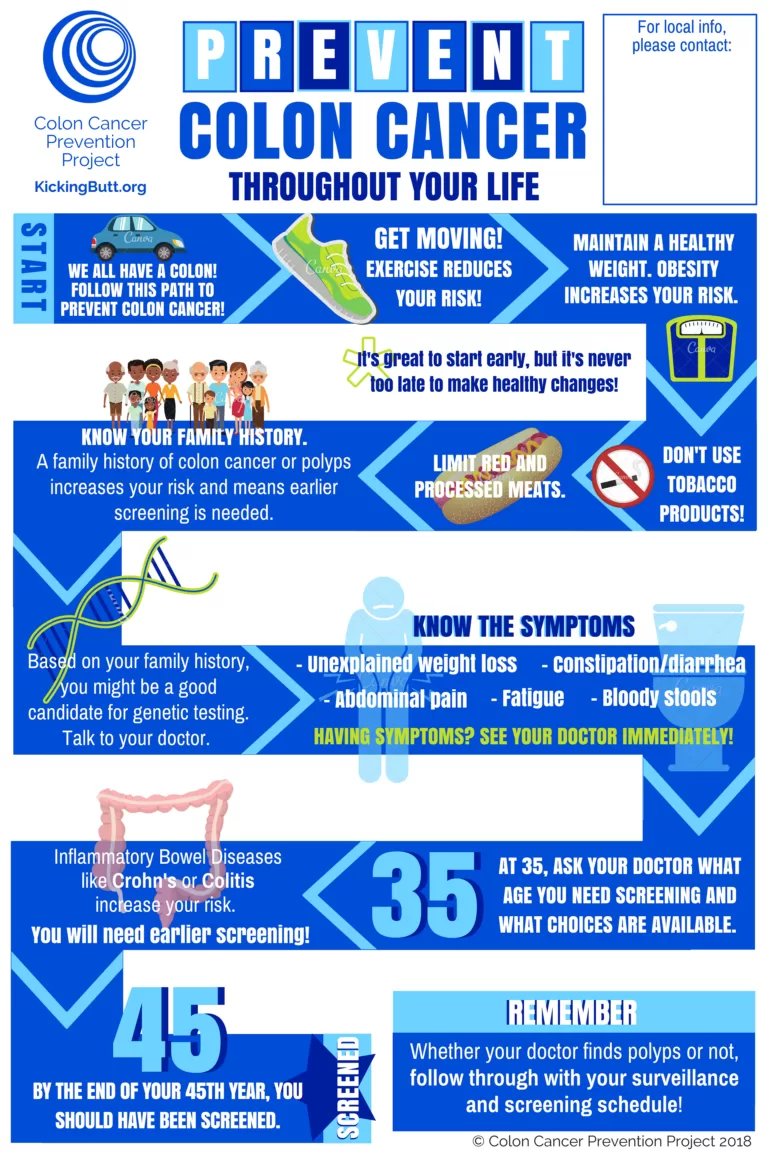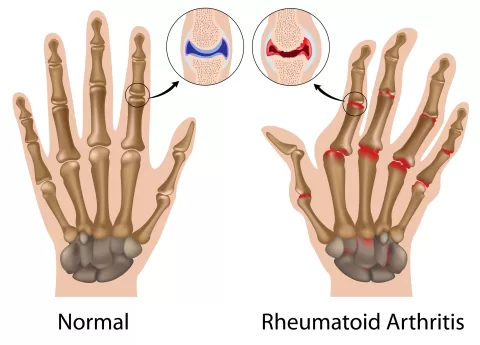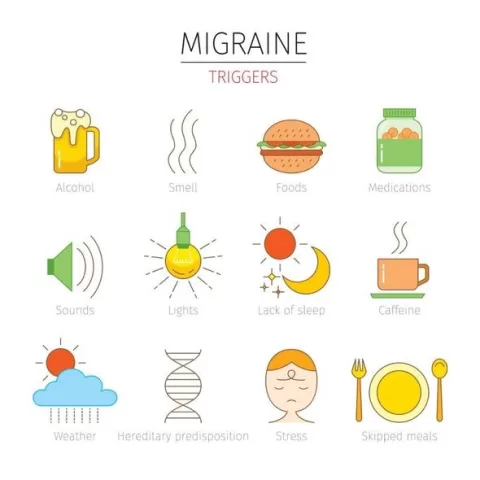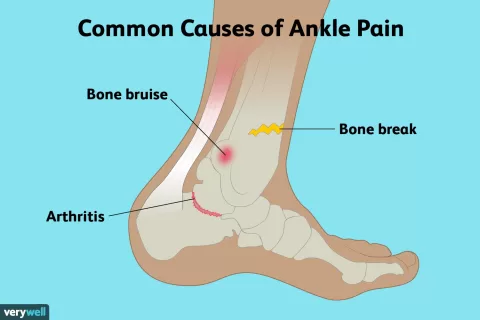Colon cancer prevention is a critical topic in health, as it stands among the most common cancers affecting populations today. To effectively reduce colon cancer risk, individuals must embrace a proactive approach that includes regular screening, maintaining a healthy diet, and engaging in physical activity. Research shows that early detection through screenings can save lives, while dietary choices rich in fruits and vegetables contribute significantly to lowering cancer risks. Furthermore, leading an active lifestyle not only promotes overall health but also helps manage weight—another crucial factor in colon cancer prevention. In this article, we will explore various strategies and lifestyle changes that can help you take control of your health and work towards decreasing your risk of colon cancer.
When discussing strategies to combat colorectal cancer, it’s essential to recognize the importance of early intervention and healthy living. Preventing this disease involves embracing habits that contribute to better digestive health, such as nurturing a balanced nutritional intake and staying active. The link between an individual’s lifestyle choices and their susceptibility to colorectal malignancies cannot be overstated. Understanding the comprehensive measures of disease prevention, including consistent medical check-ups and awareness of possible colorectal symptoms, can empower individuals to mitigate their cancer risks effectively. This exploration will illuminate various approaches that individuals can adopt to safeguard their well-being against colorectal cancer.
Understanding Colon Cancer Symptoms: Early Detection is Key
Colon cancer symptoms can be subtle and often go unnoticed in the early stages, making awareness an essential part of prevention. Common symptoms include persistent changes in bowel habits, such as diarrhea or constipation, blood in the stool, and abdominal discomfort. Recognizing these signs early allows for timely screening and diagnosis, which can be crucial in the effective treatment of the disease. It’s vital to be attuned to one’s body and report any unusual changes to a healthcare professional.
In addition to gastrointestinal symptoms, unexplained weight loss and fatigue may also signal the presence of colon cancer. As these symptoms can often be attributed to various other conditions, it is crucial to consult with a doctor if they persist. Regular check-ups and open communication with healthcare providers significantly enhance the chances of early detection, thus improving treatment outcomes.
Dietary Choices: Fueling Colon Cancer Prevention
A healthy diet significantly influences overall health and serves as a formidable ally in the fight against colon cancer. Emphasizing fruits, vegetables, and whole grains while minimizing red and processed meats can greatly reduce cancer risk. Foods high in fiber, such as legumes, whole grains, and fresh produce, contribute to improved digestion and may reduce inflammation in the gut, which is linked to cancer development.
Furthermore, incorporating foods rich in calcium and vitamin D into your diet could provide additional protective benefits against colon cancer. Dairy products and leafy greens are excellent sources of these nutrients. Ensuring a balanced diet not only supports cancer prevention but also promotes overall well-being. Making conscious dietary choices is a crucial step individuals can take to empower their health.
The Role of Physical Activity in Reducing Colon Cancer Risk
Regular physical activity is another effective strategy for reducing colon cancer risk. Engaging in exercises like walking, swimming, or cycling for at least 30 minutes most days can significantly impact physical health. Studies indicate that being active helps maintain a healthy weight, which is closely linked to a reduced risk of various cancers, including colon cancer. This is particularly relevant given that obesity is a recognized risk factor.
Moreover, physical activity contributes to better overall bodily functions, including improved digestion and immune system support. Incorporating exercise into daily routines not only aids in weight management but also enhances mood and energy levels, promoting a more active lifestyle that benefits long-term health. By prioritizing movement and physical fitness, individuals can take a proactive stance against colon cancer.
Limiting Alcohol Consumption: A Key to Colon Cancer Prevention
Limiting alcohol intake is crucial in the fight against colon cancer. Research has established a direct link between excessive alcohol consumption and an increased risk of developing this type of cancer. Current guidelines recommend that women limit their alcohol consumption to one drink per day and men to two. Adhering to these recommendations can significantly help mitigate cancer risk.
Additionally, choosing to abstain or minimize alcohol not only supports cancer prevention but also promotes better overall health. Alcohol can interfere with nutrient absorption and digestion, both of which play vital roles in maintaining a healthy body. By making informed choices regarding alcohol, individuals can further enhance their preventive measures against colon cancer.
The Importance of Regular Screening for Colon Cancer
Regular screening is one of the most powerful tools for early detection of colon cancer and can significantly reduce mortality rates. Health experts, including the American Cancer Society, recommend that individuals begin screening around the age of 45. Various methods, such as colonoscopies and stool tests, allow for early identification of polyps and abnormalities, potentially preventing the disease from developing.
Timely screening enables doctors to intervene early when treatment is most promising. Regular screenings create an opportunity for health care professionals to monitor changes in an individual’s colon health, facilitating preventive measures tailored to each person’s needs. Through awareness and participation in screening programs, individuals can take significant steps in protecting their health and reducing their risk of colon cancer.
Frequently Asked Questions
What are the key factors to reduce colon cancer risk?
To effectively reduce colon cancer risk, individuals should prioritize regular screening starting at age 45, adopt a healthy diet rich in fruits, vegetables, and high-fiber foods, engage in regular physical activity, manage a healthy weight, limit alcohol consumption, and avoid tobacco. These strategies collectively contribute to lower incidences of colon cancer.
How does a healthy diet contribute to colon cancer prevention?
A healthy diet plays a significant role in colon cancer prevention by emphasizing high-fiber foods such as fruits, vegetables, and whole grains. These foods support gut health and can reduce inflammation linked to cancer. Additionally, diets low in red and processed meats, and high in calcium and vitamin D, further contribute to reducing colon cancer risk.
Why is regular screening essential for colon cancer prevention?
Regular screening is essential for colon cancer prevention because it allows for the early detection of polyps or abnormal growths when treatment is more effective. The American Cancer Society recommends screenings starting at age 45, utilizing methods such as colonoscopy, flexible sigmoidoscopy, and stool tests to monitor and reduce cancer risk.
What is the relationship between physical activity and colon cancer?
Physical activity is linked to reduced colon cancer risk as maintaining an active lifestyle helps control weight and enhances overall health. Engaging in at least 30 minutes of moderate exercise on most days has been shown to significantly lower the risk of several diseases, including colon cancer, making it an integral part of cancer prevention.
Can avoiding tobacco lower the risk of colon cancer?
Yes, avoiding tobacco can significantly lower the risk of colon cancer. Evidence indicates that smoking not only increases the risk for lung cancer but also enhances the likelihood of colorectal cancers. Quitting tobacco usage is one of the most effective strategies individuals can implement to reduce their overall cancer risk.
| Prevention Strategy | Details |
|---|---|
| Regular Screening | Start at age 45; methods include colonoscopy, flexible sigmoidoscopy, and stool tests. |
| Healthy Diet | Eat a diet rich in fruits, vegetables, and whole grains; limit red and processed meats. |
| Physical Activity & Weight Management | Engage in at least 30 minutes of exercise most days; maintain a healthy weight. |
| Limit Alcohol Consumption | Women should limit to one drink per day; men to two. |
| Avoid Tobacco | Quitting smoking reduces risk of colorectal cancer. |
| Medications | Consult a doctor about the potential benefits of medications like aspirin. |
| Genetic Screening | Consider genetic testing if there is a family history of colon cancer. |
Summary
Colon cancer prevention involves several proven strategies that can significantly reduce the risk of developing this disease. Beginning screenings at age 45 is crucial for early detection, while adhering to a healthy diet rich in fruits, vegetables, and whole grains can help. Additionally, maintaining an active lifestyle and a healthy weight, along with limiting alcohol and avoiding tobacco, are vital for reducing your risk. Medications like aspirin may offer further protection, while genetic testing can provide insights for those with family histories of the disease. By engaging in these preventive measures, individuals can take significant steps toward lowering their risk of colon cancer.
The content provided on this blog (e.g., symptom descriptions, health tips, or general advice) is for informational purposes only and is not a substitute for professional medical advice, diagnosis, or treatment. Always seek the guidance of your physician or other qualified healthcare provider with any questions you may have regarding a medical condition. Never disregard professional medical advice or delay seeking it because of something you have read on this website. If you believe you may have a medical emergency, call your doctor or emergency services immediately. Reliance on any information provided by this blog is solely at your own risk.








